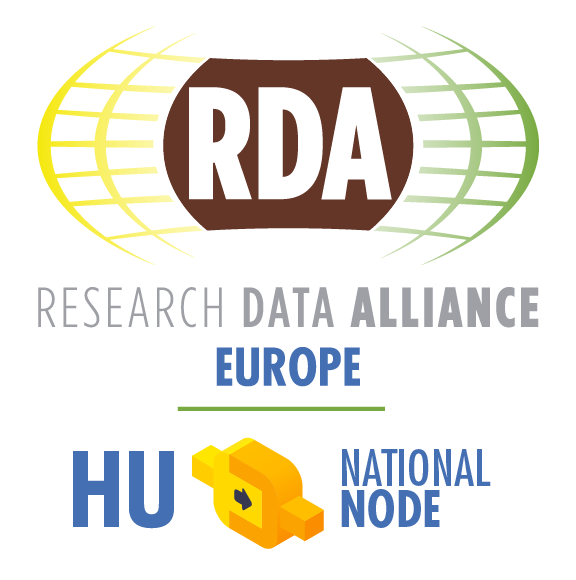Events
1. Awareness raising
The advancement of a national data management agenda requires primarily awareness raising among involved stakeholders including trainings and skill development on the use of data. An advocacy program should be organized to familiarize the national research and data communities about the domestic and international landscape of research and data policies in order to effectively integrate the national initiatives into the international data discourse. Therefore, the presence of national institutions and associations in international forums (conferences, workshops, seminars) is crucial to exchange information and share best practices. Collaborations with international initiatives and programs, such as OpenAIRE, EOSC, FOSTER and other RDA nodes will also contribute to an exchange of best practices and know-hows in organizing workshops and conferences, since sharing experiences is vital in the developing global data discourse.
HRDA members have already organized several events including national and international workshops and conferences. MTA SZTAKI is a major player in the European research arena, a member of ERCIM, the European Research Consortium for Informatics and Mathematics. Members of the Institute regularly organize international and global conferences. MTA SZTAKI together with other research institutions of MTA organised the very first national conference on research data management in 2015, where national research practices, policies, customs etc. were discussed and attendees were given a complete overview of actual problems and future prospects of research data management of the country. Such conferences provide a forum where besides the exchange of international and national knowledge and practices, communication and collaboration among stakeholders is facilitated. Therefore, a series of national events on RDM is going to be established as one of the core activities of the planned HRDA node.
The HUNOR association also organized several conferences and a national workshop on different aspects of open science (open peer review, EOSC, OpenAIRE). Based on the results of the Hungarian institutional open data survey, conducted by HUNOR within the framework of OpenAIRE in 2016, a follow-up workshop is planned to be organized to discuss with participating representatives the barriers institutions face in developing infrastructures for data sharing. The workshop also will focus on gathering good examples of how to increase uptake of data reuse among researchers and public sector users.
On the infrastructure side, KIFÜ is the co-organizer of the major e-Infrastructure conference in Hungary, NETWORKSHOP. The annual conference provides each year an opportunity to hundreds of developers, operators and users of the e-Infrastructure facilities and services, including the ones devoted to functions of data infrastructures. The conference definitely will be an excellent opportunity to build RDA and especially HRDA relations and collaboration in the future, among others by both demonstrating and strengthening the emergence of data-driven or data-intensive research.
A main landmark in the development of HRDA awareness raising program series is the organization of an RDA event in Hungary where new developments in the open science discourse regarding EOSC, FAIR principles, PlanS and the investment priorities on HPC infrastructures (Horizon Europe EUroHPC) will be presented and discussed.
2. Trainings
As increasing volumes of data are being created by researchers and research data management and data sharing has become an urging requirement, new sets of competencies and skills are in demand for researchers and professionals who support them. In order to strengthen data sharing and reuse, training/education to manage research data throughout the data lifecycle is essential involving not only researchers, but also their support professions (data scientists, data librarians, data managers, data analysts, research administrators, infrastructure providers and developers, etc.). The primary objectives of these trainings are, on the one hand, to provide information on standards, RDA recommendations and outputs, data skills, etc., and on the other hand, to advance the practical application of this knowledge.
Webinars and training events will inform the wider research communities on the benefits of data reuse and the main principles of data management. Following the previous training events organized by MTA SZTAKI together with MTA Wigner Data Center on the use of MTA Cloud, a new series of events will be organized in which the subjects will be extended towards FAIR data management.
KIFÜ, as the e-Infrastructure provider for the entire research, education, and public collection communities in Hungary, brings under the HRDA umbrella a wide user community consisting of some 5000 institutions (including, at the higher end, universities, and research organisations and, at the lower end, the primary and secondary schools of the Hungarian “schoolnet” community). Training events, seminars and webinars will be essential to connect to the wide scope of data providers and users and coordinate their data management activities through standards and guidelines provided by RDA.

